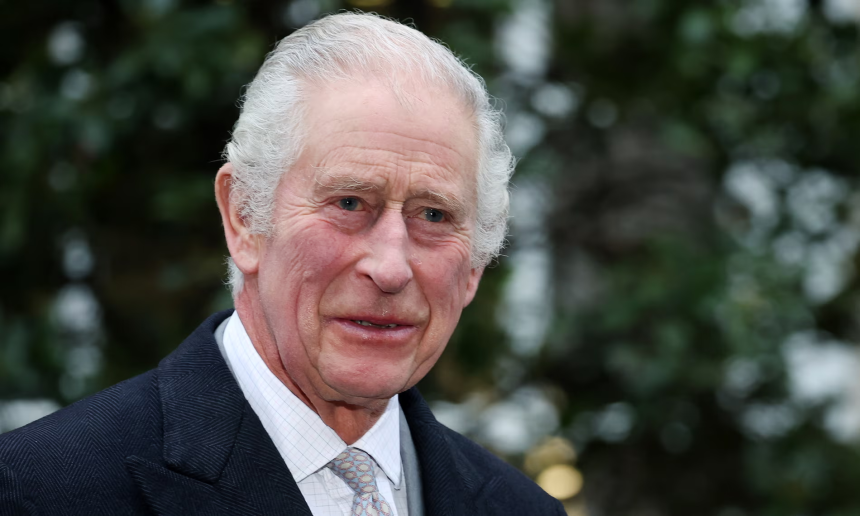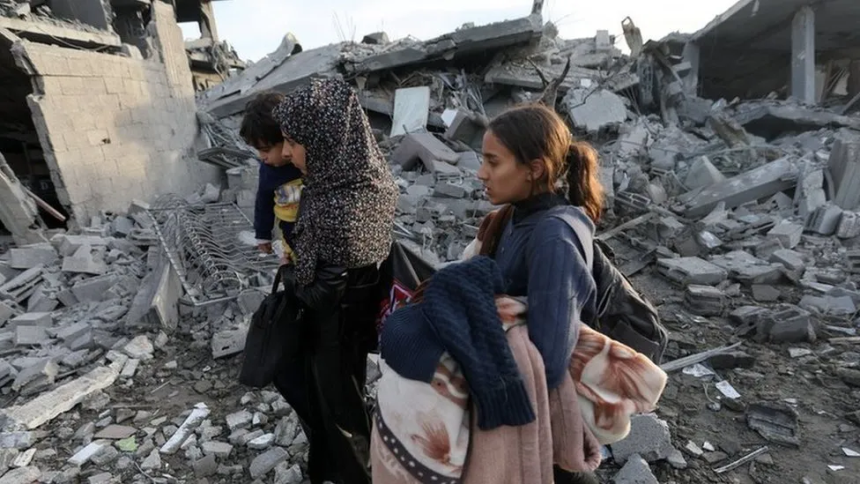Ukraine war: Nothing but rubble in shattered ghost town Avdiivka
#war #ukraine #russia #conflict
By Abdujalil Abdurasulov
BBC News, eastern Ukraine
After months of fierce fighting, small groups of Russian troops have reached the heavily damaged eastern Ukrainian town of Avdiivka and are trying to gain a foothold there.
The small number of civilians left have been fleeing the town in greater numbers under relentless fire, and as Ukrainian forces try to repel the attacks.
Avdiivka is a gateway to the Russian-controlled city of Donetsk. It has been effectively on the front line since 2014 when the conflict in eastern Ukraine started.
All attempts by Russian troops to advance there have failed. Until now.
Residents who have fled and volunteers who try to evacuate others from Avdiivka told the BBC that Russian troops had recently seized several streets in the southern part of the town.
One volunteer, who wished to remain anonymous, claimed they were first seen in the outskirts on 19 January.
"Some people managed to get out from those areas but it was two days ago," he said. "Now, no-one is coming out. We are only getting information that there are bodies on the streets but it's too dangerous to go there."
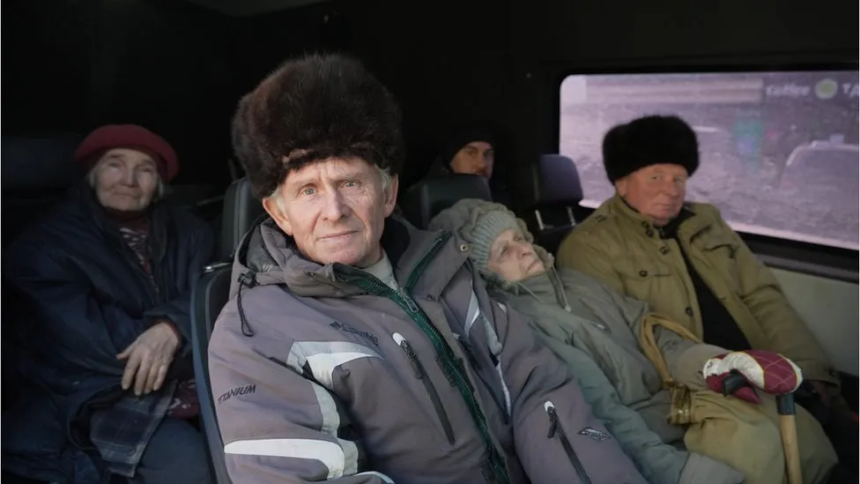
Avdiivka had a pre-war population of more than 30,000. Last summer it was closer to 1,650. Now, there are just over 1,000 remaining. Many have fled, but many have also been killed.
The head of the town's military administration, Vitaly Barabash, says it was small Russian sabotage groups who managed to get to the outskirts, and not large units.
"They didn't enter with serious forces. Yes, they had certain success, but the street that everyone is talking about - Soborna Street - is under our control. We have pushed them out," he told the BBC.
This is, however, the first time that Russians have managed to enter the town since the start of the full-scale invasion in February 2022.
Since last October, the Russians have unleashed a relentless campaign of artillery and air strikes. Authorities say that in January alone, they dropped more than 300 guided aviation bombs.
And as its buildings have been reduced to rubble, Avdiivka has become a graveyard as well as a ghost town.
The dead are left under the rubble as there are neither emergency services nor equipment to clear the wreckage.
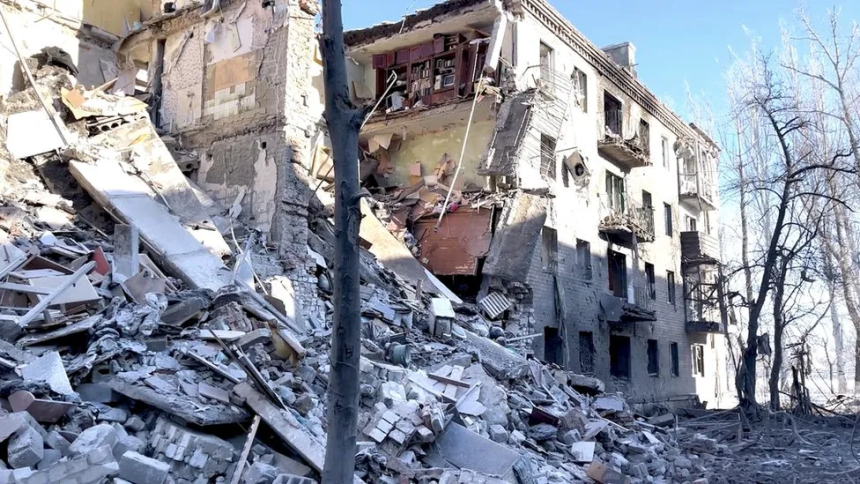
Vlad Mahovsky, a volunteer who evacuates civilians, showed the BBC a message from a resident a few days ago.
"The basement where people were staying on Soborna Street has been hit, a lot of people have died," it says.
The volunteer was unable to get there because the street is now the new front line.
Gennadiy Yudin and his colleague Dmytro Soloviy are part of the "White Angels" police unit that organises evacuations.
They are often the first to arrive at the scene of explosions, meaning they are often targeted in follow-up attacks.
Earlier this month at the site of an air strike, they discovered a woman bleeding badly inside a house.
Shots rang out nearby as they were tending to her wounds. Shortly afterwards, a drone dropped a bomb that narrowly missed their car.
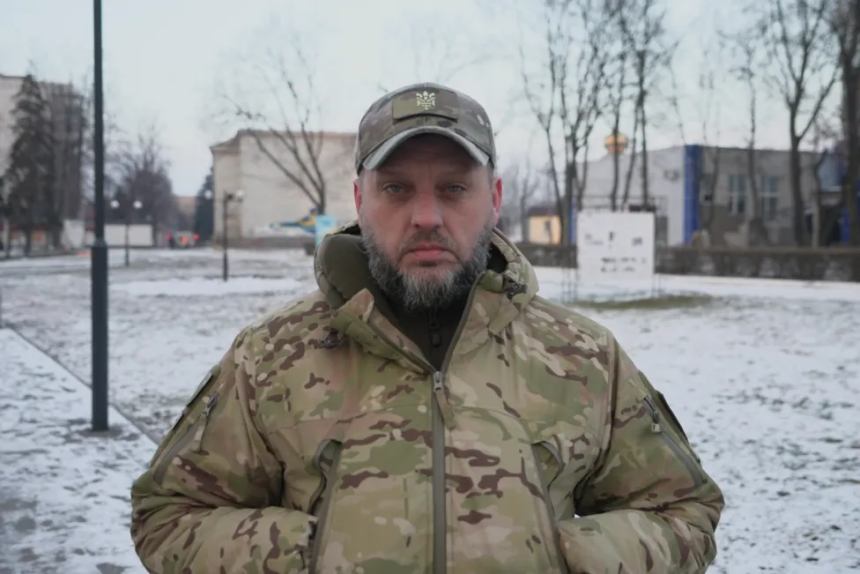
Many residents avoid staying in basements in large groups now. The Russian drones are able to spot where they gather and drop bombs, says Vitaliy Barabash.
They can detect the smoke from stoves too, he adds.
Despite the bombardments and unbearable living conditions, there is still a contingent of holdouts who do not want to be evacuated.
Mr Yudin said many people were scared of the uncertainty of moving to a new location.
In one of the videos the White Angels shared with the BBC, they visit an elderly woman after several rockets fell near her house. They beg her to leave to join her grandchildren, but she refuses.
"Let me die here," she tells them with a weak voice. She can barely walk.
There is a perception among many Ukrainians that those who remain in front-line villages and towns have pro-Russian views. In some cases that may be true, but those staying at this point - when death could come at any moment - are unlikely to be motivated by politics.
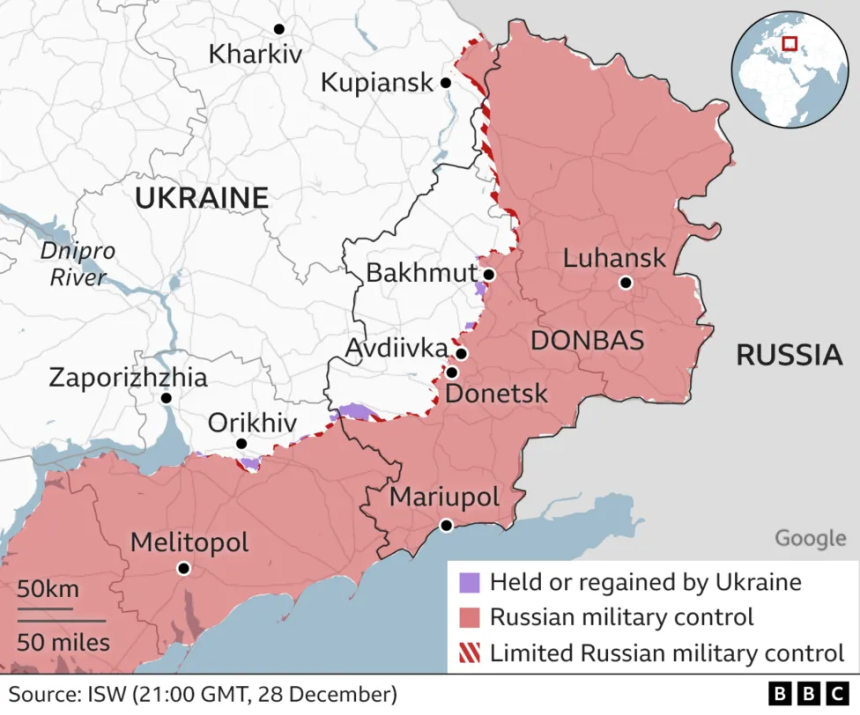
And there has been an increase in those leaving as the fighting intensifies - 400 people since October, according to the town's military administration.
Some leave because they are wounded and require urgent medical care.
"My wife is very ill, so I decided to leave," says Victor. "It's unbearable. I need to leave to save her."
Victor is among six people who left with volunteer Vlad Mahovsky. They spoke to the BBC when they made a short stop in Myrnohrad, some 50km (30 miles) away from their hometown.
They looked on with interest as people walked along the pavement and cars waited at traffic lights. They hadn't seen such scenes for nearly two years.
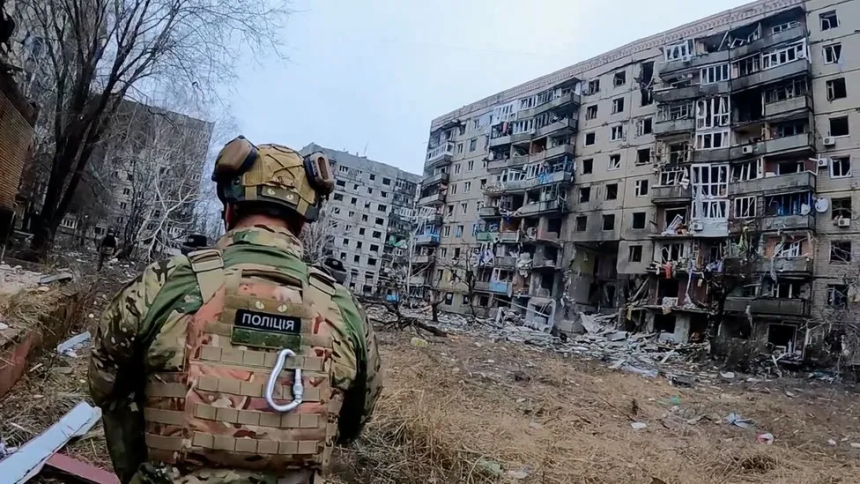
Just half an hour before, as they were leaving Avdiivka, a shell landed near their second car but luckily no-one was hurt.
Ekaterina Vasylyivna, 79, is still shaking from the journey through what is now known as the "road of life".
Three times shells and rockets fell near her house but it was the death of her husband that pushed her to leave. "He went out to get bread and never came back," she said, crying. "I've been left alone. I was so scared during the strikes that my leg got paralysed."
She wipes tears off her face but memories keep coming. "My house burnt down, the ceiling collapsed. They hit a house next to mine - there was a bang and it turned into dirt. Nothing left of it."
Her fellow passenger, Roma, left behind his grandparents who refused to leave. "My grandmother is paralysed and immobile," he said.
"Ok, let's go!" announces the driver. "Thank God it's quiet here!"
And for the first time, a glimpse of a smile appears on the faces of his passengers as they drive away from the horrors of the war.
Article: https://www.bbc.com/news/world-europe-68086568

